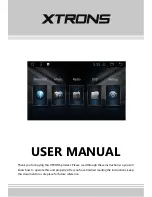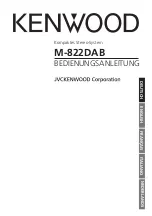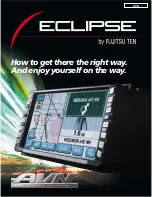
SECTION 6 –
ELECTRICAL
6-10
•
Make sure battery cable clamps are tight on
the terminal posts and are free of corrosion.
•
Neutralize corrosion buildup or acid film on
top of battery by washing with a baking soda/
water solution. Rinse with clear water.
NOTE: Make sure vent caps are on securely to
prevent baking soda solution from
entering the battery and contaminating
the electrolyte fluid.
•
Clean and tighten battery terminals and have
the specific gravity checked at least once a
year.
•
Check the battery fluid level every month, or
more often in hot weather. Fill to
approximately 3/8 inch above the plates. DO
NOT OVERFILL. If fluid is added during
freezing weather, the motor home should be
driven several miles to mix water and
electrolyte to prevent freezing.
•
Fluid level check may be omitted if equipped
with maintenance-free batteries.
Chassis Batteries
If your coach is going to be unoccupied for
two weeks or more, Winnebago Industries
®
recommends disconnecting the chassis batteries
in your coach to avoid battery discharge.
Turn the Chassis Battery Disconnect switch
(located near the entrance door) to the OFF
position to disconnect batteries.
CIRCUIT BREAKERS – HOUSE
12-VOLT
All 12-volt circuits and equipment in the
coach area of the motor home are protected by
the breaker panel. When a circuit is overloaded or
a short develops in any part of the system, a fuse
or breaker will shut down that circuit. If this
happens, turn off all affected lights or appliances
and reset the breaker or replace the fuse with a
new one of equal amperage rating.
House Breaker Panel
The House 12-Volt Breaker Panel is located
behind a cabinet door near the galley, below the
refrigerator, or under the bed, depending on
model.
WARNING
Before removing any battery cables or
battery, make sure all 12-volt equipment
in the motor home is off and the power
cord has been disconnected. Be sure to
replace the battery terminal boot, if
supplied, back onto the positive terminal
after servicing. Care must be taken to
avoid pinching the cable between any
metal parts. Should the cable be
damaged, a short circuit could result in
personal injury or damage to equipment.
Replace any damaged cables at once.
Always remove jewelry and wear
protective clothing and eye covering
when checking or handling batteries.
WARNING
To prevent wiring damage, it is essential
when replacing the cables on the battery,
or when using a “booster” battery, that the
positive post and the positive cable be
attached and the negative post and
negative cable be attached. The posts are
marked (+) plus and (-) minus.
If a “boost charger” is used while battery
is in the motor home, disconnect both
battery cables before connecting the
charger to avoid damage to engine
electronic components.
Never attempt to charge or boost a frozen
battery. An explosion can occur resulting
in personal injury.
















































